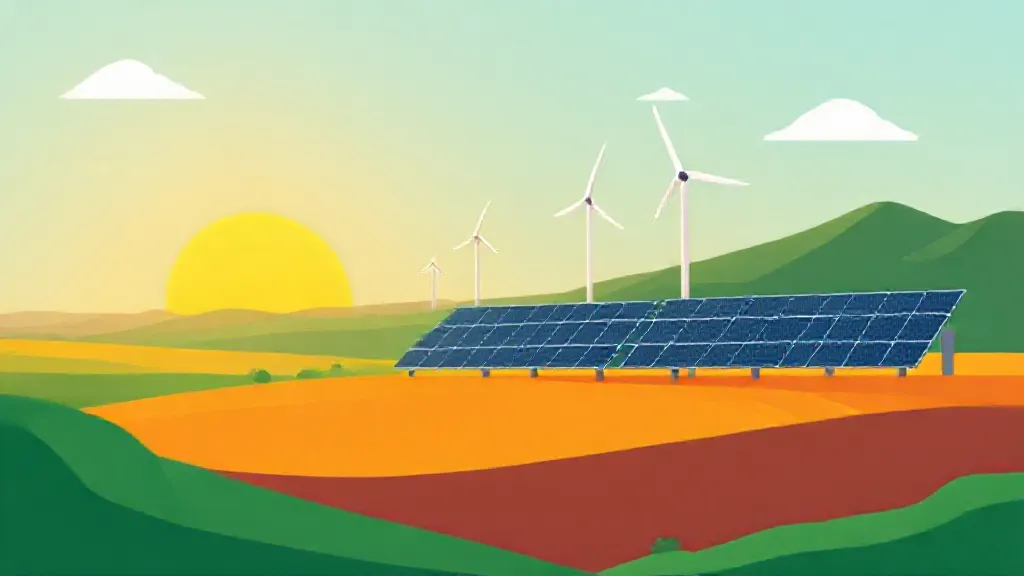The urgency of switching to renewable energy has never been more pronounced. As the world grapples with the consequences of climate change, the transition from fossil fuels to sustainable energy sources emerges as a critical solution. The Intergovernmental Panel on Climate Change (IPCC) has warned that to limit global warming to 1.
5 degrees Celsius, a significant reduction in greenhouse gas emissions is essential. This goal necessitates a rapid and widespread shift to renewable energy, which includes solar, wind, hydroelectric, and geothermal sources.
The Environmental Crisis: A Call to Action
The environmental crisis is characterized by rising temperatures, melting polar ice, and more frequent extreme weather events.
According to NASA, the last decade was the hottest on record, a trend that poses severe threats to ecosystems and human societies alike. The burning of fossil fuels for energy is the largest source of greenhouse gas emissions, accounting for approximately 70% of total emissions. Transitioning to renewable energy sources can drastically reduce these emissions, mitigating the impacts of climate change and fostering a healthier planet.
Economic Benefits of Renewable Energy
Beyond environmental considerations, switching to renewable energy also brings substantial economic benefits. The renewable energy sector has proven to be a significant job creator. According to the International Renewable Energy Agency (IRENA), the sector employed over 11 million people globally in 2018, and this number is expected to grow as investments in clean energy technologies increase.
Furthermore, renewable energy sources often have lower operational costs compared to fossil fuels, leading to long-term savings for consumers and businesses alike.
Energy Security and Independence
Another compelling reason for the urgent switch to renewable energy is energy security. Many countries rely heavily on imported fossil fuels, which can lead to geopolitical tensions and economic vulnerability.
By investing in domestic renewable energy sources, nations can enhance their energy independence and stability. Countries like Denmark and Germany have made significant strides in this area, showcasing how renewable energy can provide a reliable and stable energy supply while reducing dependence on foreign oil.
Technological Advancements Driving Change
Technological advancements play a crucial role in making renewable energy more accessible and efficient.
Innovations in solar panel technology, energy storage solutions, and wind turbine design have significantly reduced costs and improved energy output. For instance, the cost of solar energy has dropped by more than 80% since 2010, making it one of the most affordable energy sources available today. As technology continues to evolve, the feasibility of transitioning to renewable energy becomes increasingly viable.
The Role of Policy and Regulation
Effective policy and regulation are essential for facilitating the transition to renewable energy. Governments worldwide are beginning to recognize the importance of creating frameworks that support clean energy initiatives. Policies such as tax incentives, subsidies for renewable energy projects, and stricter emissions regulations can accelerate the shift towards sustainable energy.
Countries like Sweden and Norway have implemented ambitious policies that have successfully increased the share of renewables in their energy mix.
Community Engagement and Public Awareness
Community engagement and public awareness are vital components in the push for renewable energy adoption. Grassroots movements and local initiatives can drive significant change at the community level.
Educating the public about the benefits of renewable energy and how to reduce individual carbon footprints can create a collective impact. Programs that encourage community solar projects or local wind farms empower citizens to take an active role in the energy transition.
The Future of Energy: A Sustainable Vision
Looking ahead, the future of energy must be sustainable.
The transition to renewable energy is not merely an option; it is a necessity for ensuring the health of our planet and the well-being of future generations. As we face the realities of climate change, the urgency to act becomes clearer. Embracing renewable energy is a pivotal step toward a sustainable future, one that prioritizes environmental health, economic stability, and energy independence.
Conclusion: A Collective Responsibility
In conclusion, the urgency of switching to renewable energy cannot be overstated. It is a multifaceted issue that encompasses environmental, economic, and social dimensions. As individuals, communities, and nations, we share a collective responsibility to advocate for and invest in renewable energy solutions.
The time for action is now; the health of our planet and the future of humanity depend on it.
